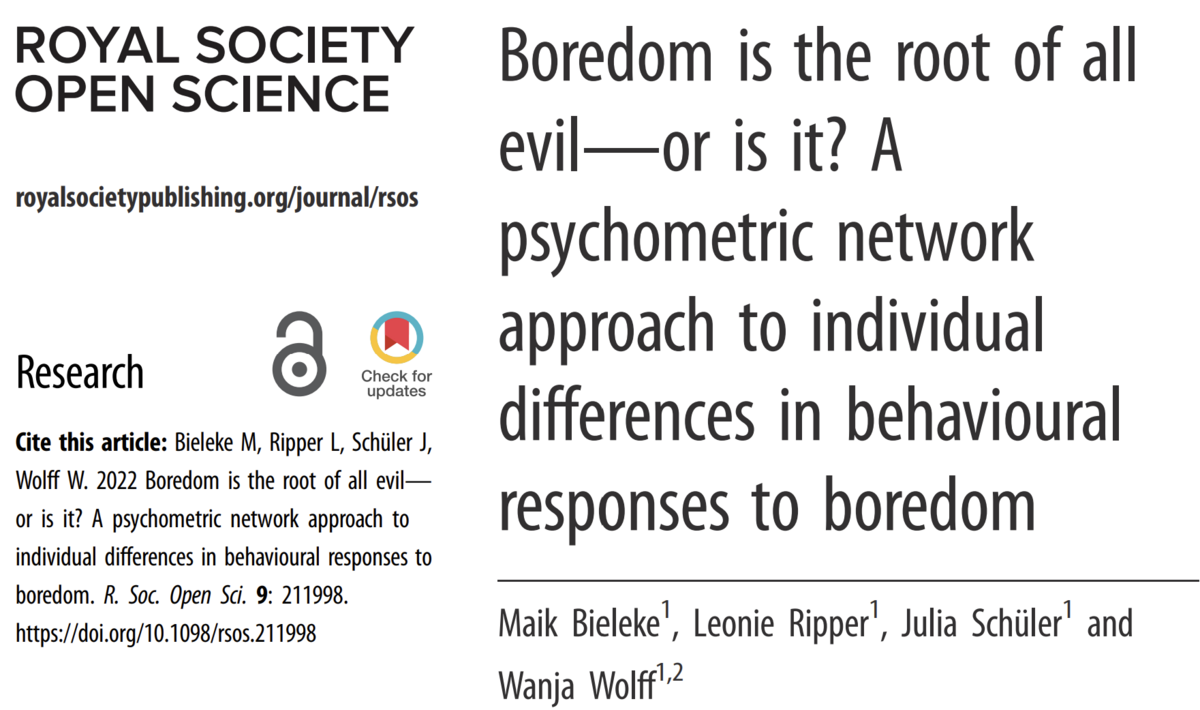
The Research (from the Abstract): "Functional accounts of boredom propose that boredom serves asan impartial signal to change something about the currentsituation, which should give rise to adaptive and maladaptive behaviour alike. This seemingly contrasts with research onboredom proneness, which has overwhelmingly shown associations with maladaptive behaviour. To shed light on this discrepancy, we disentangled boredom proneness fromin dividual differences in (i) the urge to avoid and escape boredom and (ii) adaptive and maladaptive ways of dealing with boredom by developing corresponding trait scales. In a study with N=636 participants, psychometric network modelling revealed tight associations between boredom proneness and less adaptive and (especially) more maladaptive ways of dealing with boredom. However, its associations with the urge to avoid and escape boredom were rather weak. Importantly, a higher urge to avoid and escape boredom was linked not only to more maladaptive but also to more adaptive ways of dealing with boredom. This pattern of results was robust across various specific behaviours that have previously been linked to boredom. Our findings provide novel evidence for functional accounts of boredom from an individual difference perspective, cautioning against a shallow view of boredom as being associated with purely maladaptive behaviour."
The Scale:
- 4-item scale, assessing the disposition to avoid and escape boredom. Example item: I’ll do anything to avoid feeling bored"
- score calculation: all items are worded in same direction, so no reverse coding required. We recommend using the mean over all items as a score for the dispositional tendency to avoid and escape boredom
- validated versions for English and German
The Paper: open access publication
Further Materials: Open Science Framework
